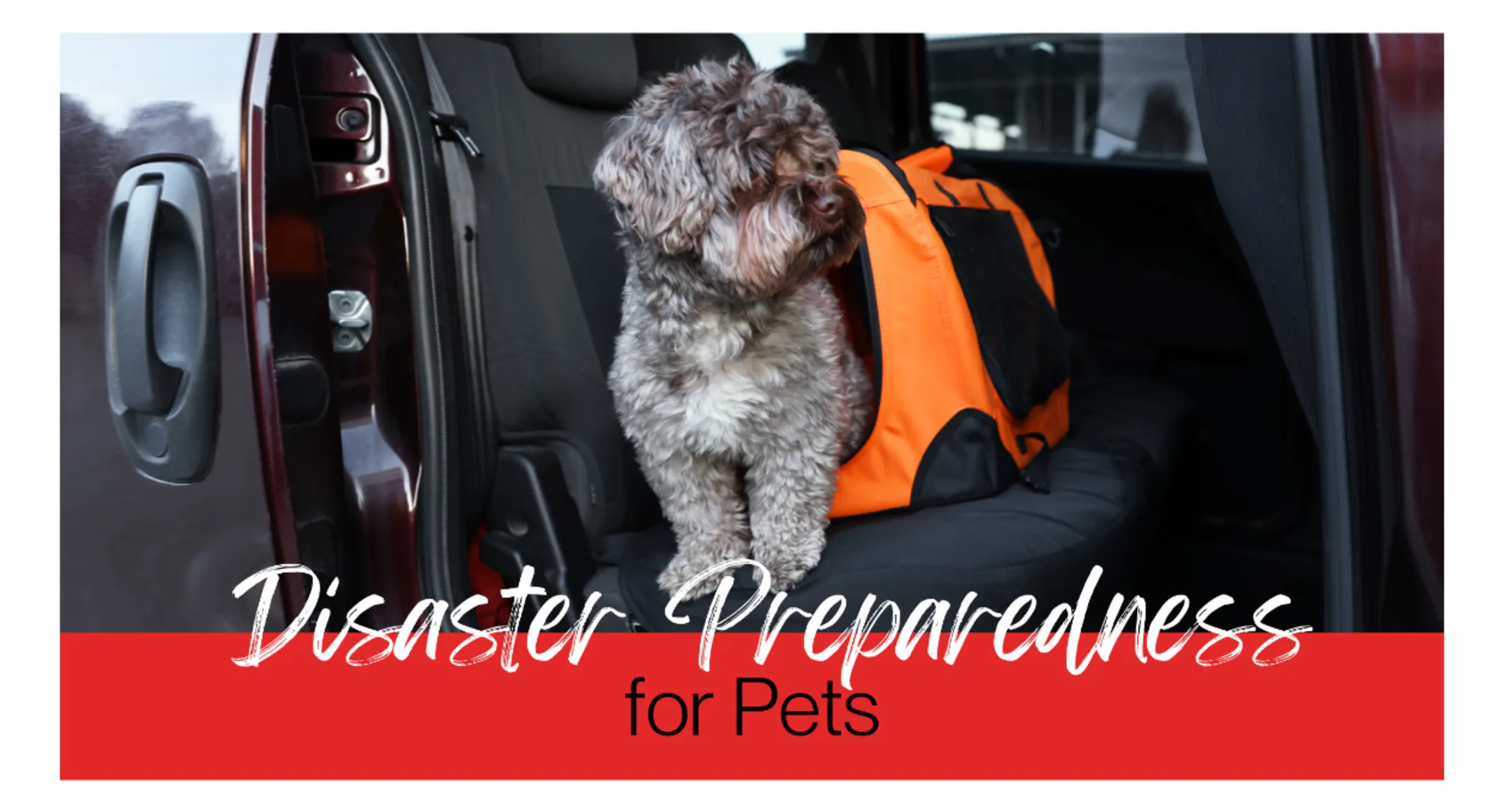Disaster Preparedness for Pets
Pet Safety

June marks National Pet Preparedness Month, timed for the first month of hurricane season, which urges people with pets to make preparations in case they should be hit by a disaster. That includes making plans for what you would do with your dog in case of a hurricane, tornado, flood, or other natural disaster. In an emergency, your pets will be even more dependent on you for their safety and well-being. Learn what to do to keep your beloved pets safe!
Assemble an Emergency Kit for Your Pet
Prepare an emergency kit for your pet ahead of time.
Purchase a pet carrier for each of your pets (write your pet’s name, your name, and contact information on each carrier).
Food and water for at least 2 weeks for each pet
For cats: litter box and litter
For dogs: plastic bags for poop
Medications for at least 2 weeks
Medical records, including records of vaccination for rabies and other diseases, prescription medications, and medical history.
Sturdy leashes or harnesses
Microchip number
Contact information (cell phone, work phone, home phone) of owners and close relatives or friends.
Create an Emergency Plan for Your Pet
If you have to evacuate your home during a disaster, the best way to protect your pets is to evacuate them too. If it’s not safe for you to stay behind, then it’s not safe to leave pets behind either.
Know which hotels and motels along your evacuation route will accept pets in an emergency. Call ahead for reservations if you know you may need to evacuate. Ask if no pet policies could be waived in an emergency.
Most American Red Cross shelters cannot accept pets because of health and safety concerns and other considerations. Service animals that assist people with disabilities are allowed in Red Cross shelters.
Know which friends, relatives, boarding facilities, animal shelters, or veterinarians can care for your animals in an emergency. Prepare a list with phone numbers.
Although your animals may be more comfortable together, be prepared to house them separately.
Include your pets in evacuation drills so that they become used to entering and traveling in their carriers calmly.
Make sure that your pet’s vaccinations are current and that all dogs and cats are wearing collars with securely fastened up-to-date identification. Many pet shelters require proof of current vaccinations to reduce the spread of disease.
Consider having your pet microchipped by your veterinarian.
After an Emergency
After an emergency, familiar scents and landmarks may have changed. Pets can become confused and lost, so it’s important to keep pets on a leash or in a carrier when they’re being transported or when you go outside. Check your home for sharp objects, spilled chemicals, and exposed wiring to protect your family and your pets from injury.
The behavior of animals may change dramatically after a flood, flash flood, thunderstorm, tornado, or hurricane. Normally quiet and friendly animals may become irritable.
Monitor animals closely and only release them in a safe and secure environment.
Contact a veterinarian if you notice any signs of stress, discomfort, or illness in your pets.
